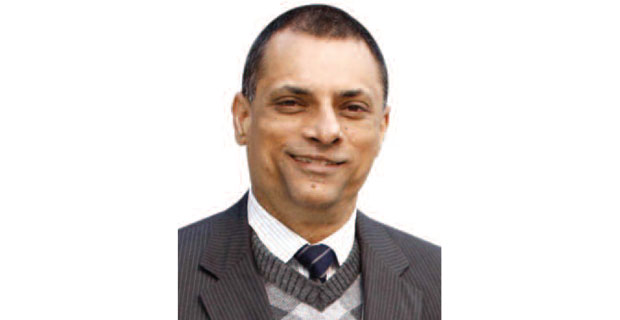Editor’s Desk
Data centers are providing the next generation infrastructure boom in India. It is estimated that India’s data centre capacity will be yanked up to levels of 4,900-5,000 megawatts in the next six years with an estimated investment of Rs 1.5 lakh crore (USD 18.75-19 billion). This growth will be fuelled primarily by an increasing consumption of data in India that has made it imperative to store and process it locally. As of now, there are about 140 data centers in the country.
Mr Rajeev Chandrasekhar, Union Minister of State for Electronics and IT, points out in an interview that data center business has surged significantly in India on the back of growing investments by global giants such as Amazon, Microsoft, Google, and others. Besides Indian majors such as the Hiranandani Group, Adani Group, Reliance Group, Princeton Digital Group along with their foreign collaborators are investing heavily in data centers across the country. Hiranandani Group’s subsidiary Yotta Infrastructure, for instance, recently laid the foundation stone for their 20-acre hyper-scale data center park in Greater Noida, Uttar Pradesh. It will cost anywhere between Rs 6,000 crore to Rs 7,000 crore.
The spate of investment follows large demands from a host of industry stakeholders to store citizens’ data locally. It is here that the Government wants to step in with more innovations around the India Cloud. It is a Cloud Computing initiative that focuses on accelerating the delivery of e-services in the country, at the same time optimizing ICT spending of the Government. The Cloud itself refers to large storage facilities on internet servers instead of a computer’s hard drive. As the world observed International Data Center Day on March 22, 2023, Mr Chandrasekhar told a news agency, “I believe the government incentives should be directed at creating an innovative India Cloud that caters to our people. We need diversity in the Cloud in the country.”
Elsewhere in the magazine, there are stories of varied interests. Silicon Valley venture capitalist Vinod Khosla, for example, says that amid the funding crunch and large-scale firings, startups with strong fundamentals will continue to be funded, even if at lower valuations. “The wheat,” says Khosla, “will get separated from the chaff,” in an interview with the BBC, and the not-so-good Indian startups will go kaput, resulting in fewer, but larger startups.
Amit Kshatriya has been appointed as the first head of NASA’s new Moon-to-Mars Program. The new program will help the space agency to carry out bold missions to the Moon and land the first humans on Mars, according to NASA Administrator Bill Nelson.
Richard Verma, a former US ambassador to India, is the new Deputy Secretary of State, Management and Resources after bagging 67-26 votes in the US Senate. Also, Darshana Patel, a research scientist who has announced her bid to run for the California State Assembly District 76, has disclosed how racist micro-aggressions and bullying were common while she was growing up in the US. She was even called “a greasy Indian” and was asked to “go back home.” Besides, the term ABCD—American Born Confused Desi—continued to haunt her as a child.
Sayantan Chakravarty
sayantanc@gmail.com











Comments.